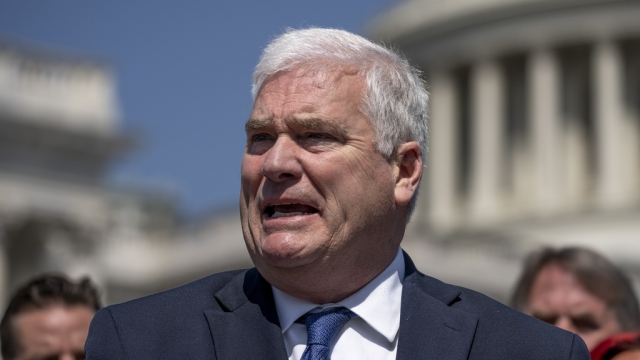Republican Rep. Tom Emmer dropped out of the race to become the next speaker of the House just hours after he secured enough GOP votes to become the speaker-designee.
Almost immediately after Republicans selected Emmer, his nomination faced pushback from former President Donald Trump.
"I have many wonderful friends wanting to be Speaker of the House, and some are truly great Warriors," Trump said on Truth Social. "RINO Tom Emmer, who I do not know well, is not one of them."
That statement likely doomed Emmer's hopes of becoming speaker, as he can only afford to lose four Republican votes when the full House votes. He already had an uphill climb to get the full support of the caucus. While he received more support than any other Republican running to become the next speaker, he only received 117 votes from his caucus on Tuesday.
Rep. Kevin Hern, Rep. Mike Johnson and Rep. Mark Green announced they are now in the race to become the next speaker.
Democrats have united behind Leader Hakeem Jeffries as their speaker nominee.
SEE MORE: House nears 3rd week without speaker; 9 Republicans announce candidacy
The protracted battle over House speakership doesn't have precedent in U.S. history.
The last formal speaker, California Republican Kevin McCarthy, was ousted in early October. McCarthy's removal came after the hard-right flank of the Republican party was upset that he joined Democrats to keep the government open in November.
North Carolina Republican Rep. Patrick McHenry then became the speaker pro tempore.
Rep. Steve Scalise and Rep. Jim Jordan were seen as successors, but they also couldn't secure the 217 votes to become speaker.
The House has now gone 20 days without an elected speaker.
A government shutdown could once again threaten if the House doesn't have formal leadership in the coming weeks. Congress faces a Nov. 17 deadline to legislate continued funding for the government. President Joe Biden has also asked Congress to approve more than $100 billion in new aid for allies in Ukraine and Israel.
Trending stories at Scrippsnews.com




